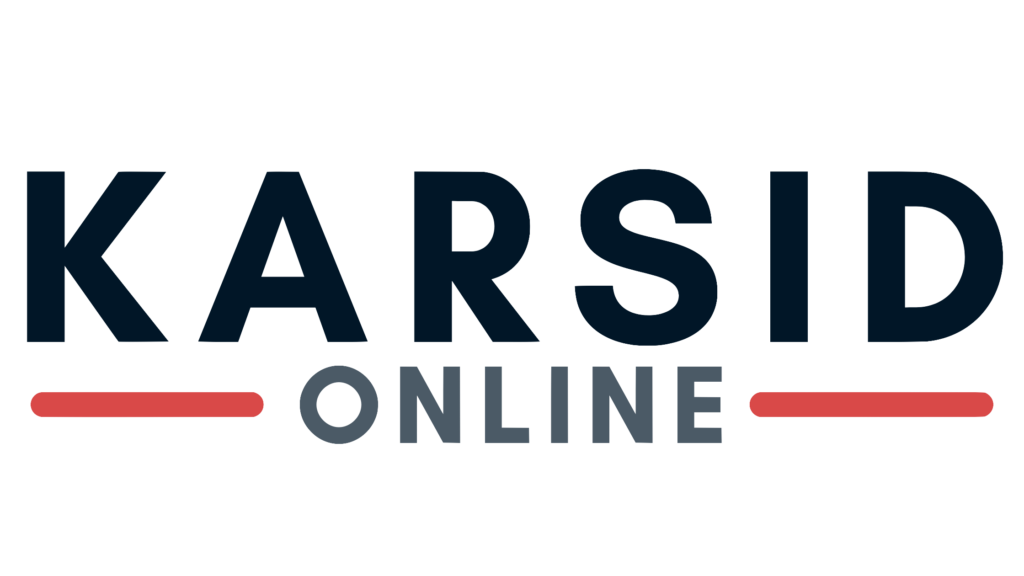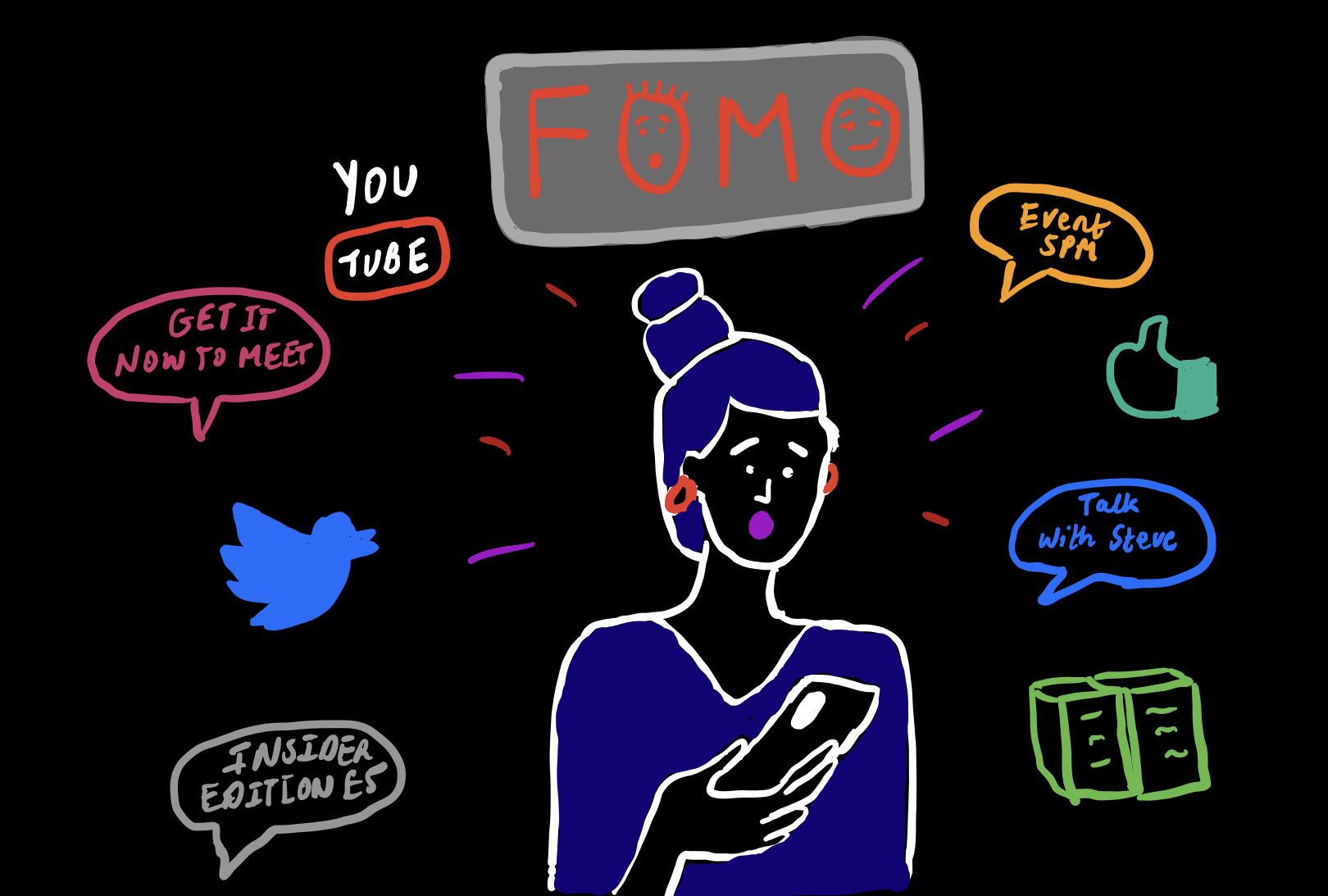Introduction to the idea
FOMO is an interesting topic. It has both advantages and disadvantages(like anything else I guess) and there are techniques for both. Similar to anything else with a grand spectrum from good to bad, friendly to evil etc, this also has its own scale. And it’s important to sit nicely in the middle for the balance. As long as you’re in the proximity of the goldilocks middle, you’re fine. Karthik, what the hell are you referring to?
Well, I’m talking about the fear of missing out of course. But to be specific I’m talking about overconsumption from FOMO.
Many people pour money and time into online content, courses, new tools, technologies etc for the sake of avoiding the void. The feel like investing in the ‘thing’ will suddenly help them out with all their problems but often the reality is it’s not something groundbreaking and they end up repeating their excessive purchases. The other end of the spectrum says that people often ignore every opportunity presented to them and they miss out everything completely. This is also not favourable because you’ve got to try content to comprehend what ‘thing’ helps you out.
Let me give an example.
Let’s set the names first.
- Hyper-dude – Purchases everything available to them to avoid FOMO completely. Often ends up spending too much time and effort.
- Dull-dude – Ignore everything presented and often feels FOMO at the end of it.
So a hyper-dude may be interested in learning Python for example and to avoid FOMO, he may buy everything that he’s recommended to cover everything. But the thing is that you can’t be perfect. And that’s exactly the flaw in the hyper-dude. He’ll buy the course, textbook, guidebook, cheatsheet etc. Oh, too much for me to handle. And often, this guy spends too much time on understanding the basic stuff that he doesn’t make too much progress over time. It takes a lot of iterations to get into grips with the content because there are so many types and he’s always trying to fit everything together(which is impossible). This is where I think that FOMO is creating a dangerous force of overconsumption.
Now, let’s talk about dull-dude. This guy will often just ignore everything. So he may be presented a course, book and textbook on the content and he might consider it to be too expensive for what he needs. And much of the time and effort is spent in contemplation between buying/not buying. Ah, too much for me. Again. So this guy as well may want to learn Python but he’ll end up sticking to the free resources and not spending too much on paid content. But this means that he’ll feel that empty void. Almost as if he’s left out from something valuable. And he feels overly FOMO.
Having seen the flaws in both ends of the spectrum, we can aim for the goldilocks middle where we balance overconsumption with healthy and productive choices so that we feel satisfied with our purchases(and as a result, we don’t feel FOMO) and most importantly, we get stuff done! The other 2 dude’s waste time in unproductive contemplation.
What can we do to control it?
If you are the second dude and you’re looking for tips to reduce FOMO, I’ve got some for you here.
Limit yourself to consuming a certain amount of content every day. Maybe 5 blogs and 5 youtube videos max. This restriction brings in awareness and value. You become more aware of what you are consuming and as a result, you will be satisfied and engage in productive learning. And you also gain value because by restricting to only a few blogs/videos, you choose the content that brings you value.
For this, there is a plethora of apps available as well as efficient techniques like to-do lists or checklists which, when practised as a habit, play to your advantage.
Furthermore, I believe gratitude should be the focus. Think about how much you have and create a satisfactory atmosphere. As much as I could get a super-powerful mac, I’m so satisfied with my minimalist one because I understand its capabilities and what it has assisted me in. And I have gratitude for it.
For this, I’ve noticed many of my favourite people do gratitude journaling where they write a few paragraphs about specific things that are providing gratitude in their life. I find this technique to be hugely influential despite my limited experience with it.
My situation and what I do
My particular situation is, in fact, a dull-dude. I spend a lot of time contemplating between which content/tool to choose that I end up being unproductive and I often have FOMO as I don’t hugely invest in the perfect content. Recently though, I’ve seen a development in me which has hinted that I’m heading towards the goldilocks middle. Great! But I question myself if something really necessary. If it is, I don’t think twice before purchasing it. Ok, maybe I think 4 times. I can easily improve in this aspect and I do believe that I am under-consumer. But hopefully, this realisation provides some insight so that I can transition into my sweet spot.
Over the hill…
We’ve talked about FOMO in terms of a consumer. But for a creator, the story is different. The creator will maximise their efforts to create a FOMO environment so that people sign up to their product. In fact, a consumer can/and often does turn into a creator by observing where FOMO has been used so that they can apply it in the product they created. It’s all related you see.
I must admit that FOMO creates real HYPE for a consumer. An example I can give is Anne-Laure Le Cunff. She has a membership-based discussion platform where people meet and discuss interesting topics and share insights. She regularly shares topics discussed and shares images of people from the discussions as well as small snippet notes to create the HYPE. It really can be used to your advantage if you’re a creator!



Leave a Reply